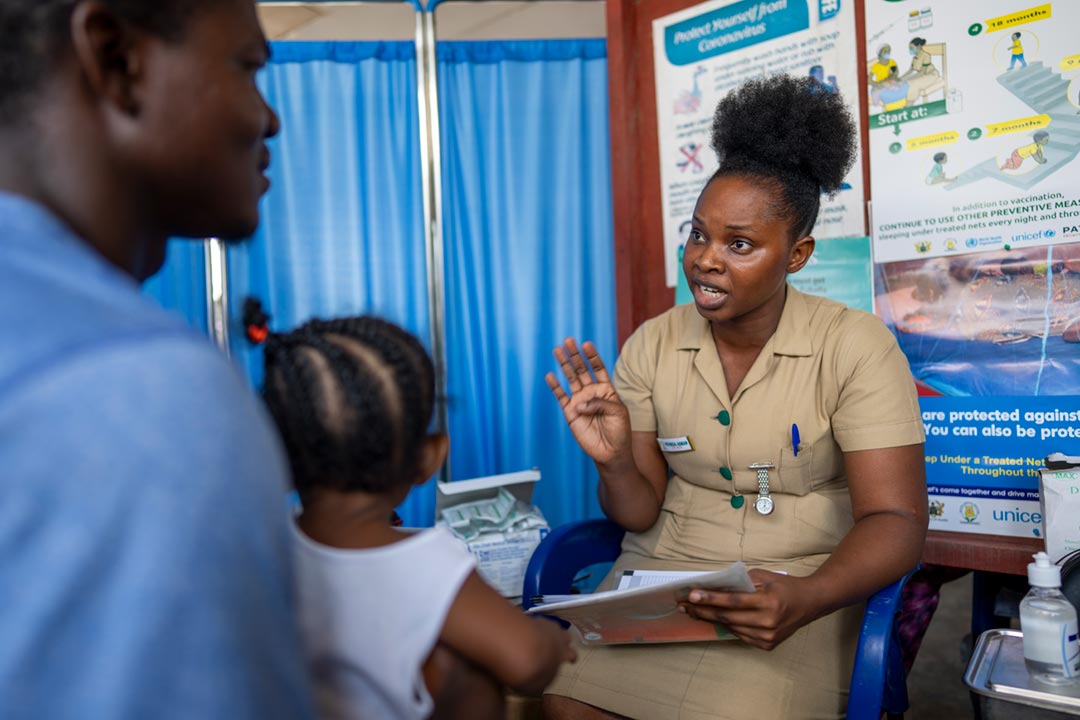Malaria experts call for action on growing drug resistance in Africa
Patterns of artemisinin resistance in South-East Asia are being detected across Africa, threatening a “ticking time bomb” of malaria deaths.
- 25 April 2024
- 4 min read
- by Priya Joi

As evidence mounts of growing antimalarial drug resistance across Africa, malaria experts are calling for urgent action to protect this critical line of defence.
Widespread drug resistance across South-East Asia has been growing for years, and has already led to a spike in infections and deaths in the region. Scientists had described malaria drug resistance as a "ticking time bomb" that would explode if it ever reached Africa, given that the continent has 94% of the 249 million cases worldwide.
While malaria vaccines now exist, they are most effective at saving lives when used in conjunction with effective antimalarial treatments.
Now the fuse may have been lit. Resistance is emerging across the continent, and experts warn that the global goal of eliminating malaria looks increasingly under threat.
Artemisinin-based combination therapy has been critical for treating malaria infections caused by the parasite Plasmodium falciparum, with intravenous artesunate an important treatment for severe malaria. Several countries in Eastern Africa, including Eritrea, Rwanda, Tanzania and Uganda, have reported artemisinin partial resistance (ART-R), which puts these lifesaving malaria treatments in jeopardy.
While malaria vaccines now exist, they are most effective at saving lives when used in conjunction with effective antimalarial treatments.
Scientists from the London School of Hygiene and Tropical Medicine as well as institutions across Africa, from Cameroon, Ethiopia, Tanzania, Mali, Namibia, Uganda and South Africa, have issued an urgent call for action in Nature Medicine today, on World Malaria Day.
Artemisinin resistance, primarily mediated by mutations in the P. falciparum Kelch13 (K13) protein, causes delayed parasite clearance. This is a problem, because if the parasite fails to clear from the bloodstream within two days, it can lead to treatment failure and drive drug resistance even further.
Have you read?
In Africa, mutations associated with ART-R have been confirmed in multiple countries, indicating diverse origins of resistant parasites and emphasising the need for comprehensive containment and control measures.
The researchers say that it is positive that organisations such as Regional Artemisinin-resistance Initiative (RAI) and the Asia Pacific Malaria Elimination Network (APMEN) have been established, and the World Health Organization (WHO) launched a strategy for mitigating ART-R in Africa.
However, they say, there has been both insufficient political action and too few funding commitments to make any significant headway in stopping the spread of malaria drug resistance across Africa.
They call for governments in the resistance hotspots and beyond to acknowledge the urgency of the issue and agree to coordinated actions such as updating treatment guidelines based on emerging resistance patterns. Regional coordinating mechanisms, with rapid sharing of standardised and validated data, knowledge and experience, will be critical, they add.
They also want to see better disease surveillance through genomic platforms, therapeutic efficacy studies and parasite phenotypic analyses to "monitor the spread of resistant parasites and assess the impacts of antimalarial mitigation efforts."
This can build on the expansion in laboratory capacity in Africa largely driven by the COVID-19 pandemic. However, this requires reagents and equipment, norms and processes for data generation and sharing, as well as development of capacity to translate molecular, clinical, and parasitology data into policy decisions.
Sub-Saharan Africa needs a tailored approach that cannot be cut and pasted from elsewhere in the world. They call for multiple interventions, including vector control, case management, chemoprevention, vaccination, and social and behavioural change communication.
Priority interventions can include the tailored deployment of triple or sequential ACTs or multiple first-line therapies, they say. The addition of transmission-blocking drugs such as single low-dose primaquine may help to reduce the spread of partial artemisinin resistance.
Finally, they call for more research to identify "mediators of P. falciparum resistance to partner drugs". Recent reports suggest that parasites with reduced susceptibility to lumefantrine are already circulating in Uganda, where K13 mutations are now present.
"Increased national and regional collaboration between research, health and other relevant sectors needs programmatic support to accelerate the identification of the drivers of resistance and to mitigate their impact," say the scientists.
More from Priya Joi
Recommended for you








